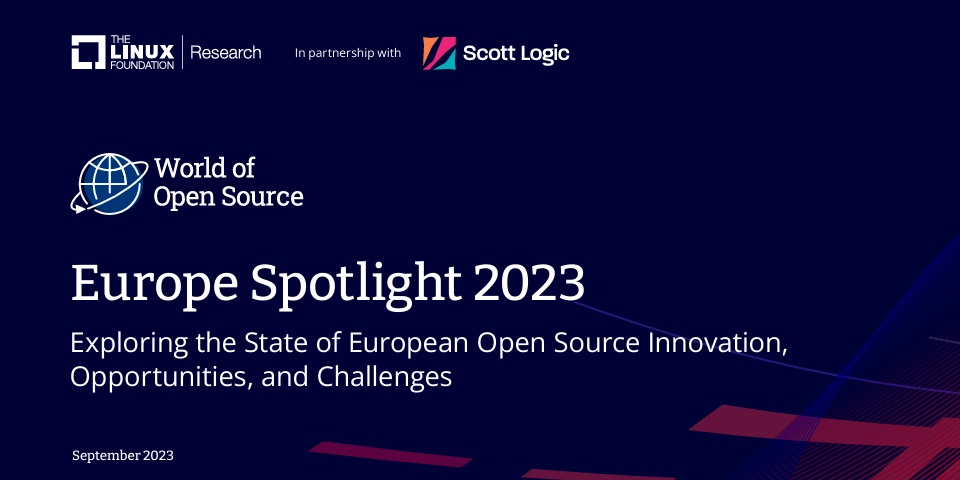Europe Spotlight 2023
Exploring the State of European Open Source Innovation, Opportunities, and Challenges
At its most basic level, open source is about creating software and then giving away both the product and code for free.
Understandably, the business value of giving away your source code is not immediately apparent. Open-Source Software monetization.
Executive Summary
- The value of open source is growing, and momentum increasing
- The public sector is not seeing the growing value perceived by others
- The value gap between open source use and contribution remains
- There is a paradox in the relationship between open source and security
The value of open source
- Open source is a catalyst for social change, enabling low-cost access to infrastructure essential to solving some of the world’s most pressing challenges, such as climate change and social inequality.
- 57% of respondents from organisations of all types indicate that the value of open source has increased over the last year, suggesting accelerating momentum.
- Open source is widely viewed to be vital to the future of industry sectors by 91% of survey respondents, 72% of which are outside of cross industry IT vendors.
- The most widely cited benefits of open source include improved productivity, innovation, and talent attraction.
- Open source has played a significant role in generative artificial intelligence (AI), with open source equivalents to restrictive solutions emerging rapidly.
- Open source communities optimised and extended AI models, significantly reducing the barrier to entry and allowing models to be trained and run on community hardware at minimal cost.
- In the public sector, the perceived value derived from open source appears to have stagnated, with 53% indicating that it has stayed the same, compared with just 25% in other industries.
- The gap between the value of open source use and contribution remains, with the greatest value being derived from lower cost of ownership, innovation, and reduced vendor lock-in.
- The business value of using open source software (OSS) is well understood, and that value is increasing, according to 59% of respondents.
- Open source is created by passionate developers. 62% of survey respondents make some form of weekly contribution in their personal time.
- Improved security ranks lowest as a benefit of open source by survey respondents, and contribution as a way to improve security is least likely to be considered.
- There is a lack of maturity when it comes to safely using OSS. Software bills of materials (SBOMs) are not well understood as a security best practice.
Useful links:
-
Digital Public Goods
-
Digital/internet commons (EU)
-
Digital technologies in Civic Tech and GovTech
-
Civic Tech and Civil Society
-
Public sector. Open Source Solutions
-
Civic technology. Open Source Solutions
Source:
Scientific journals publish articles with AI-generated text


